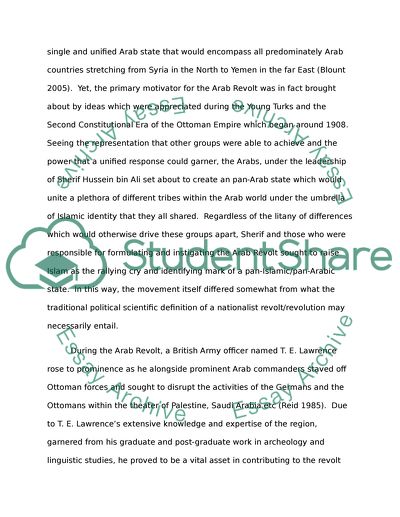The Ottoman Empire and the Arab Revolt Essay Example | Topics and Well Written Essays - 750 words. Retrieved from https://studentshare.org/history/1466365-the-ottoman-empire-and-the-arab-revolt
The Ottoman Empire and the Arab Revolt Essay Example | Topics and Well Written Essays - 750 Words. https://studentshare.org/history/1466365-the-ottoman-empire-and-the-arab-revolt.


